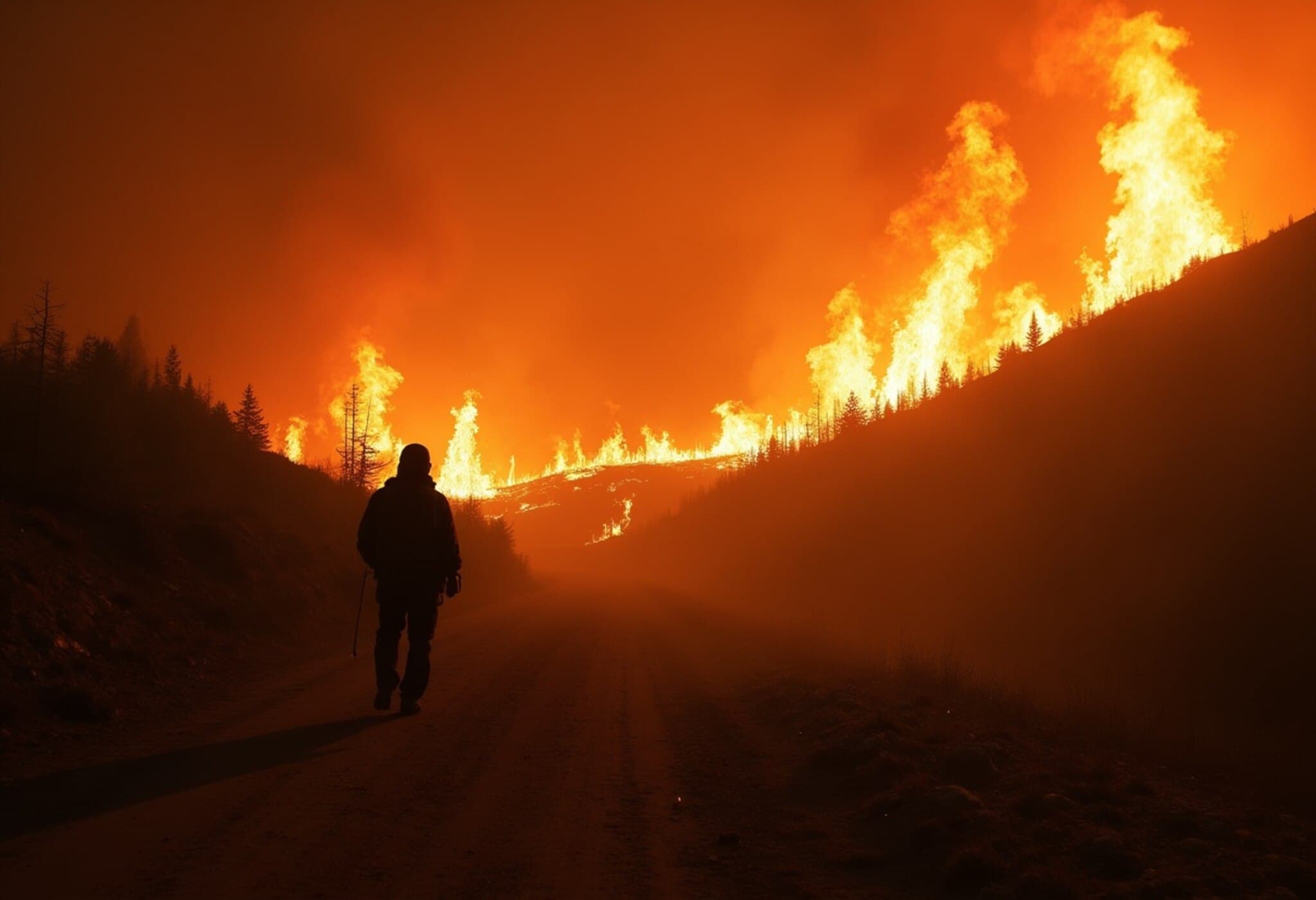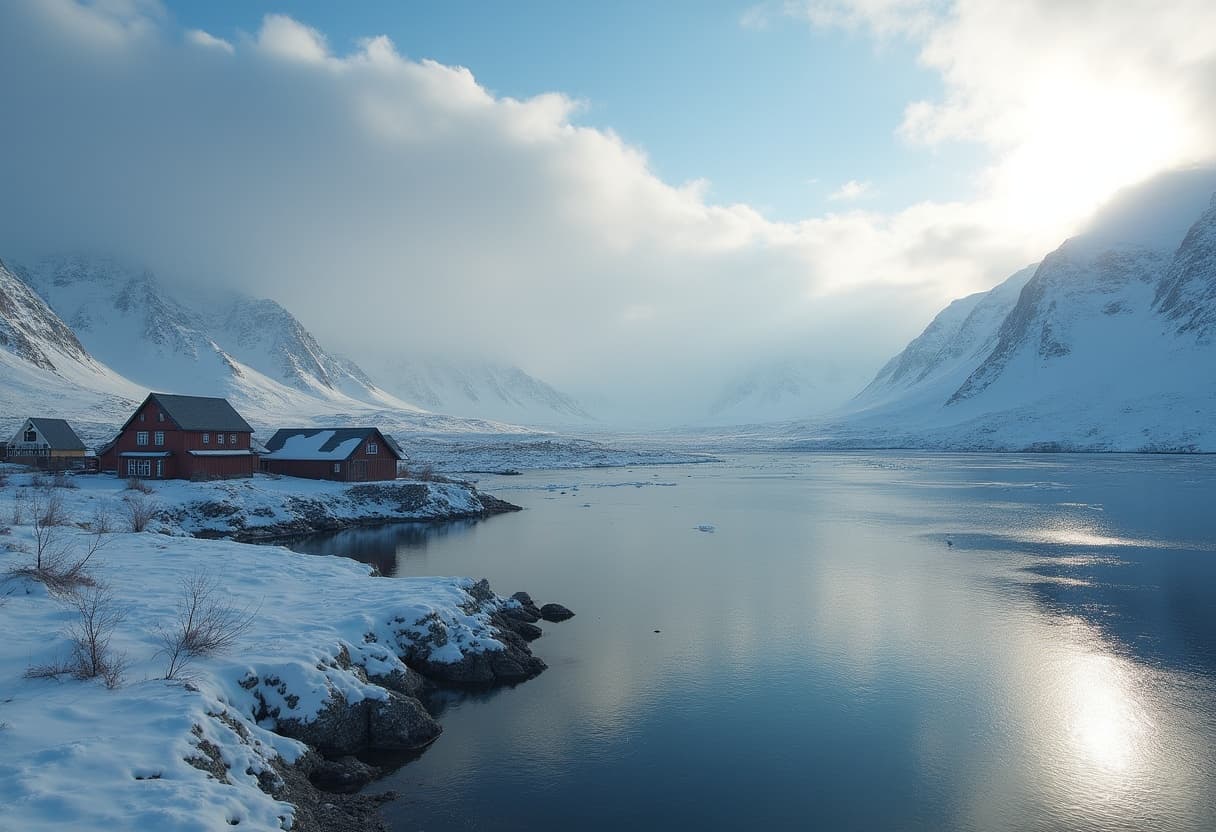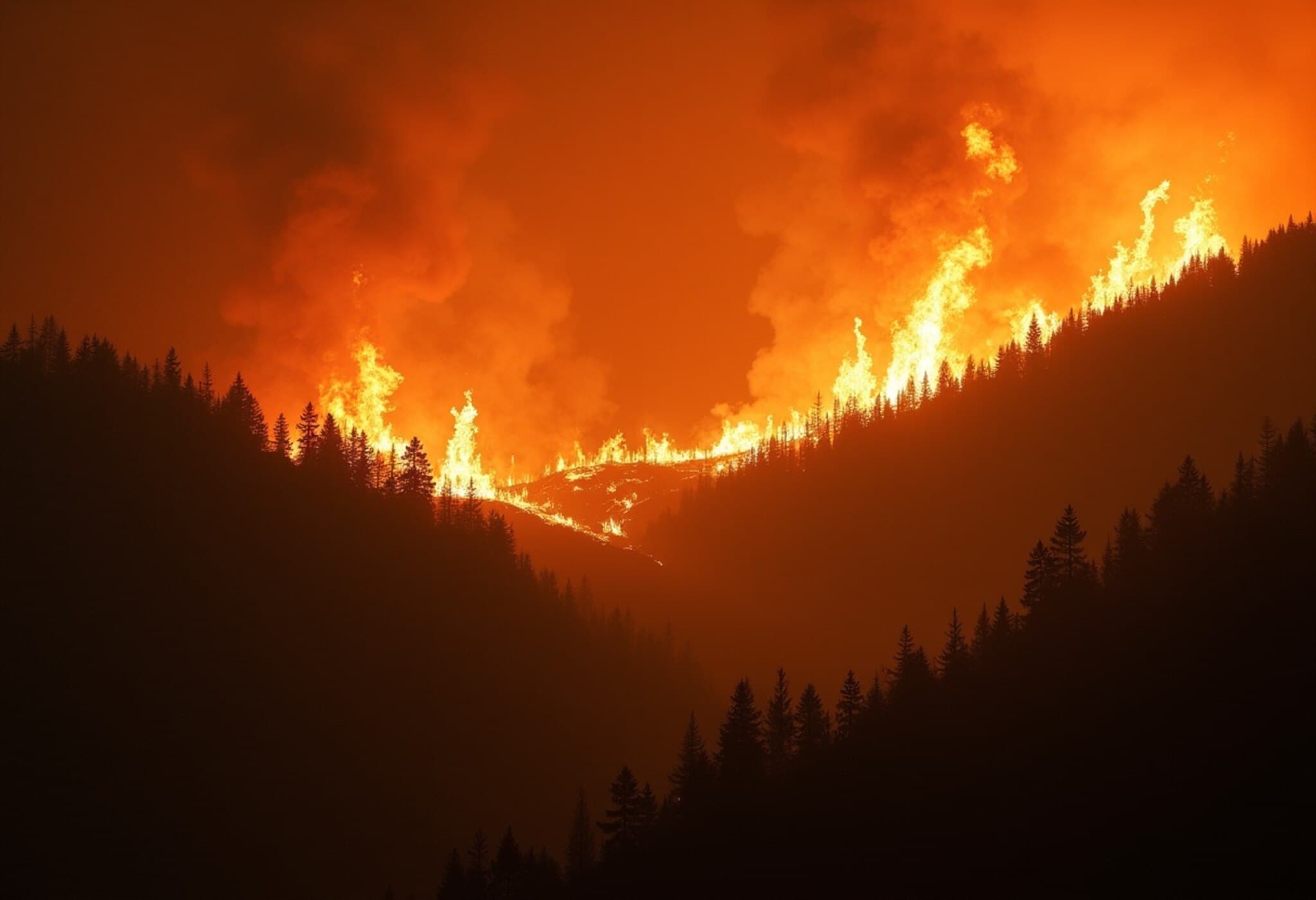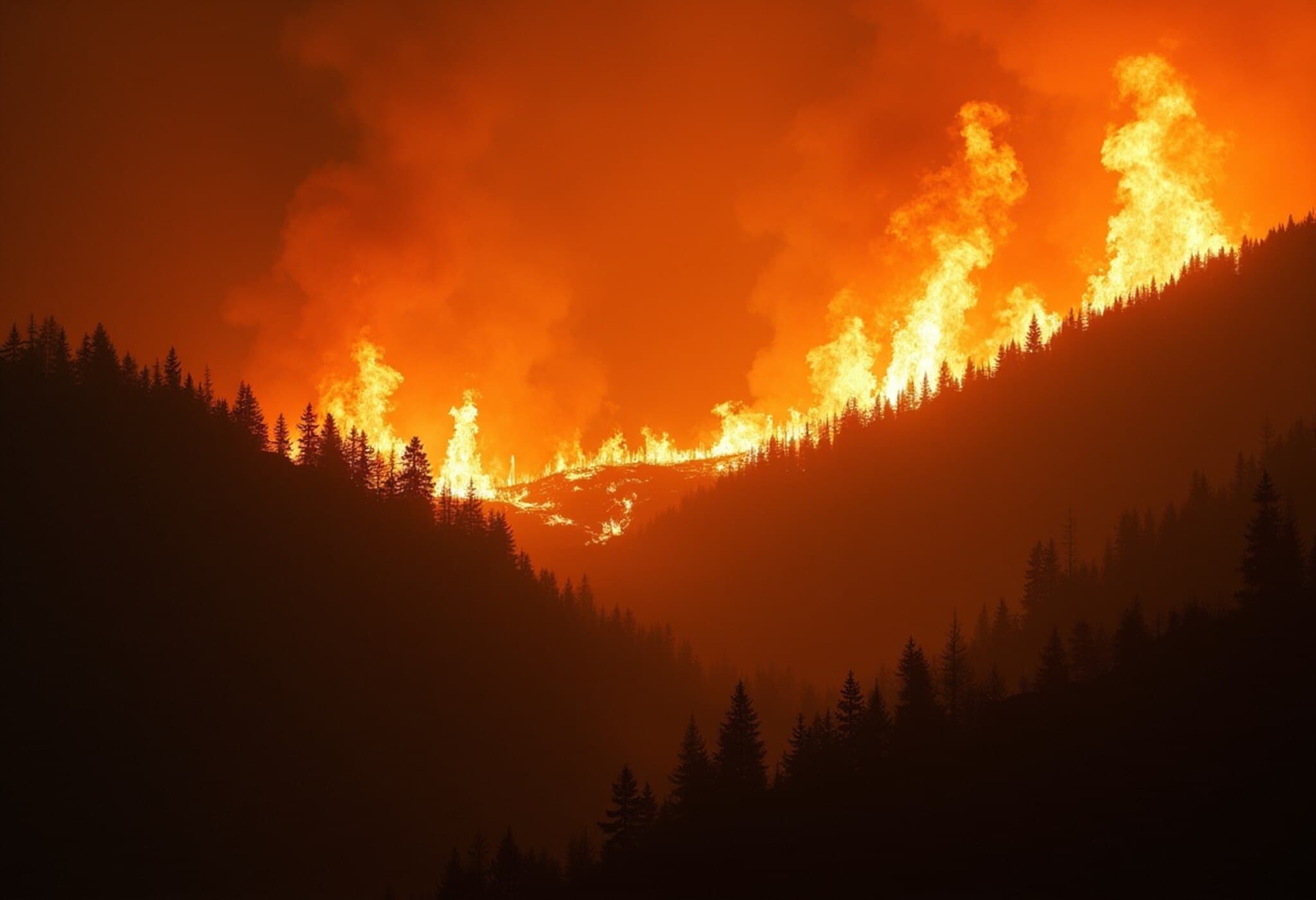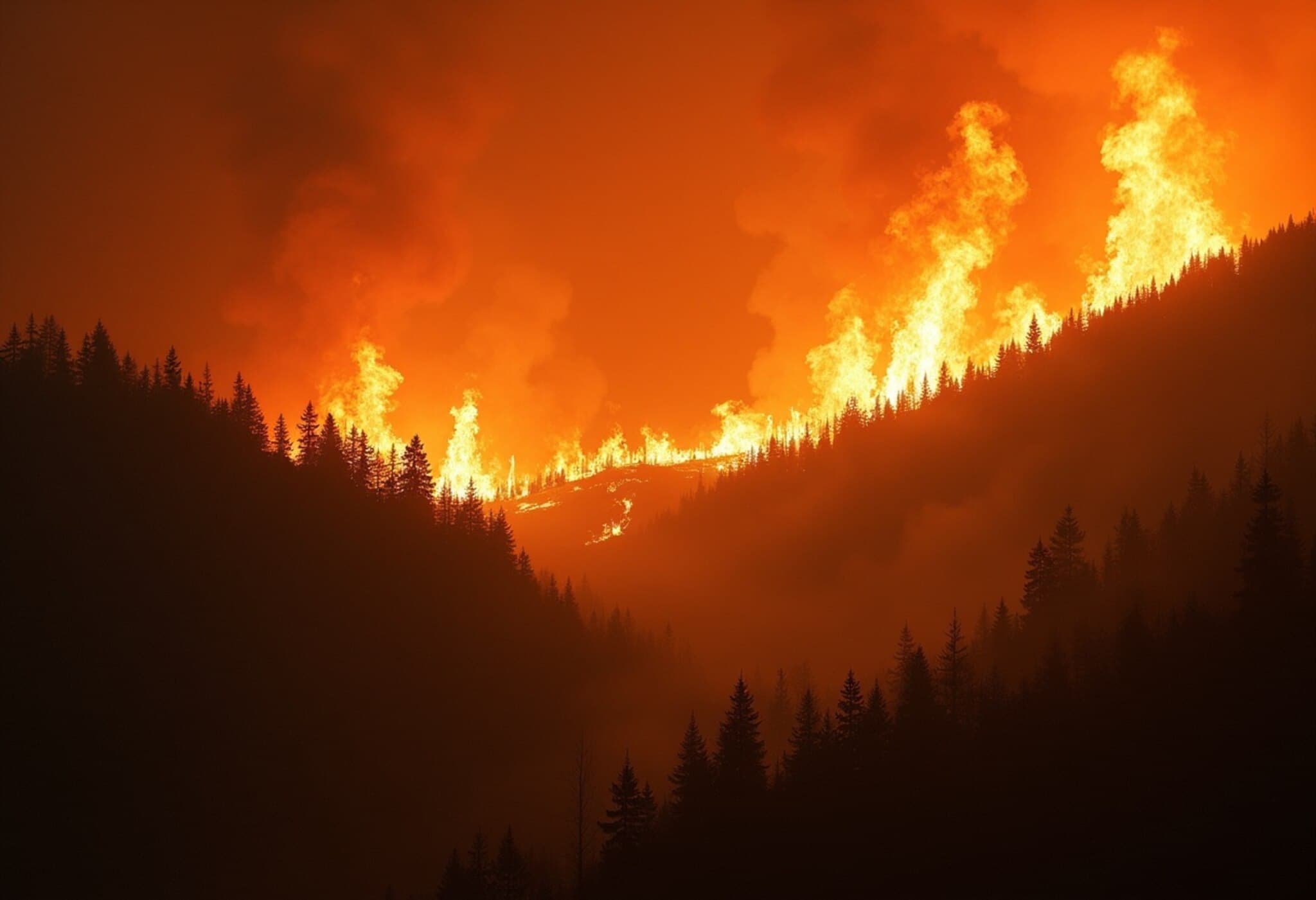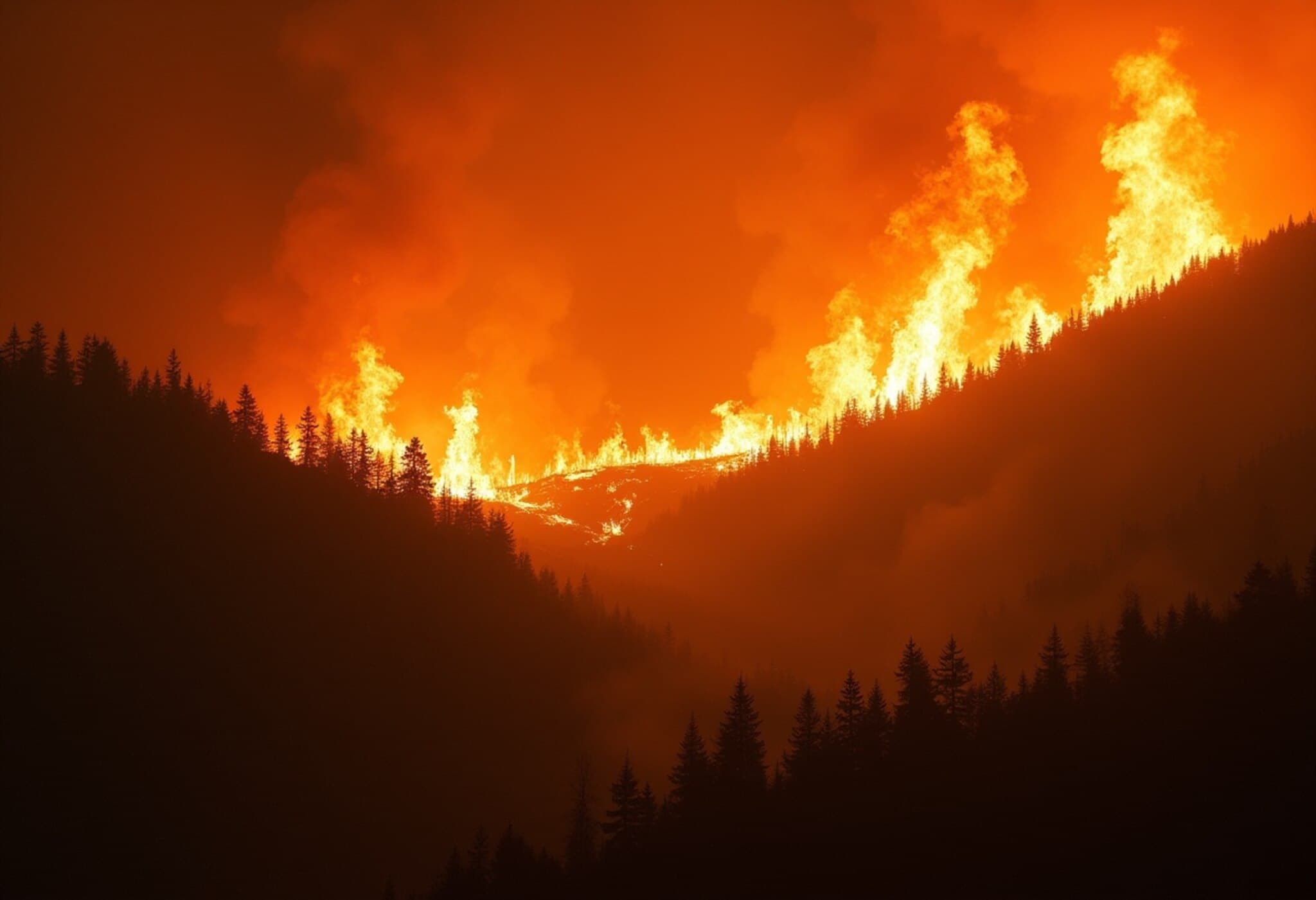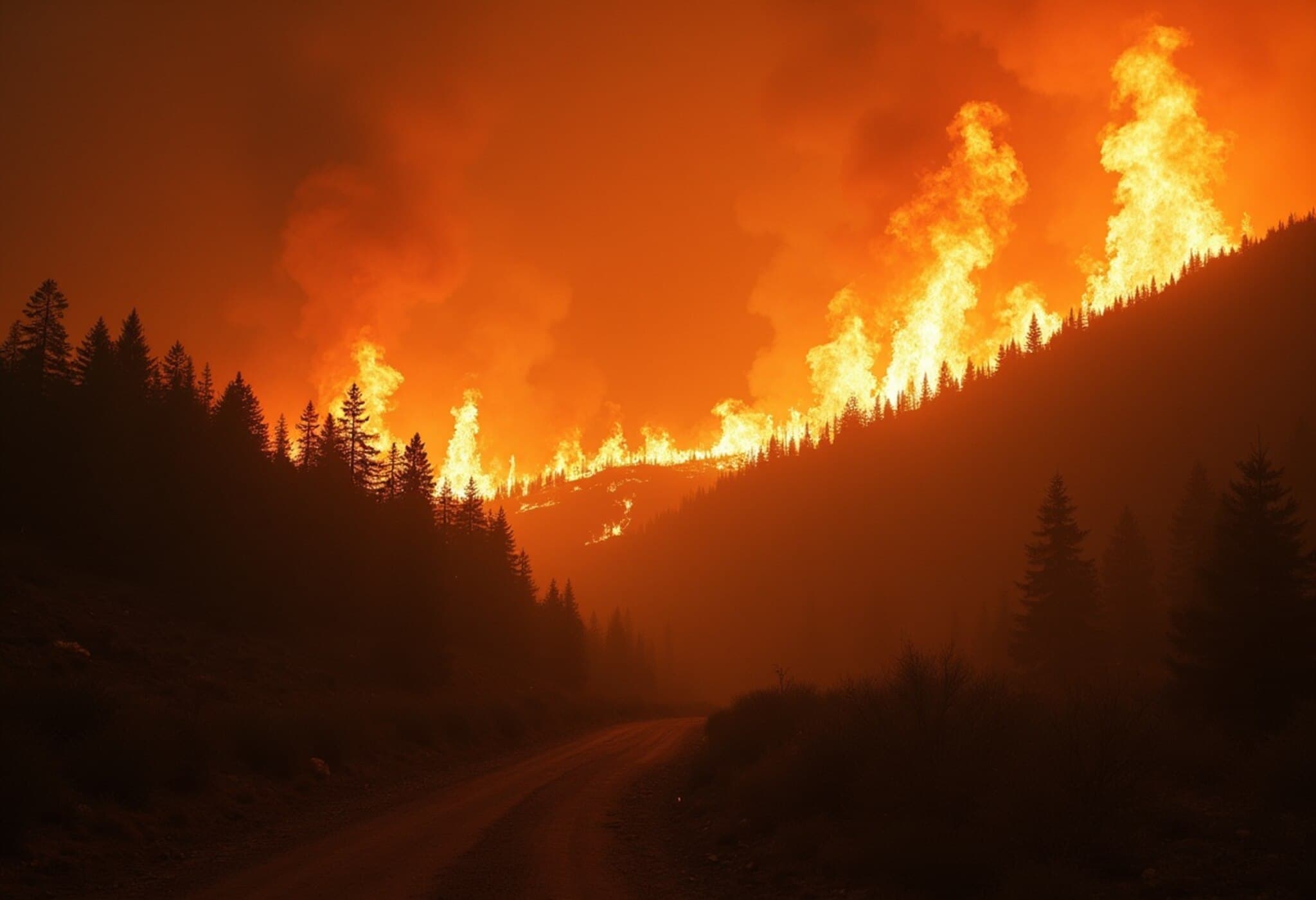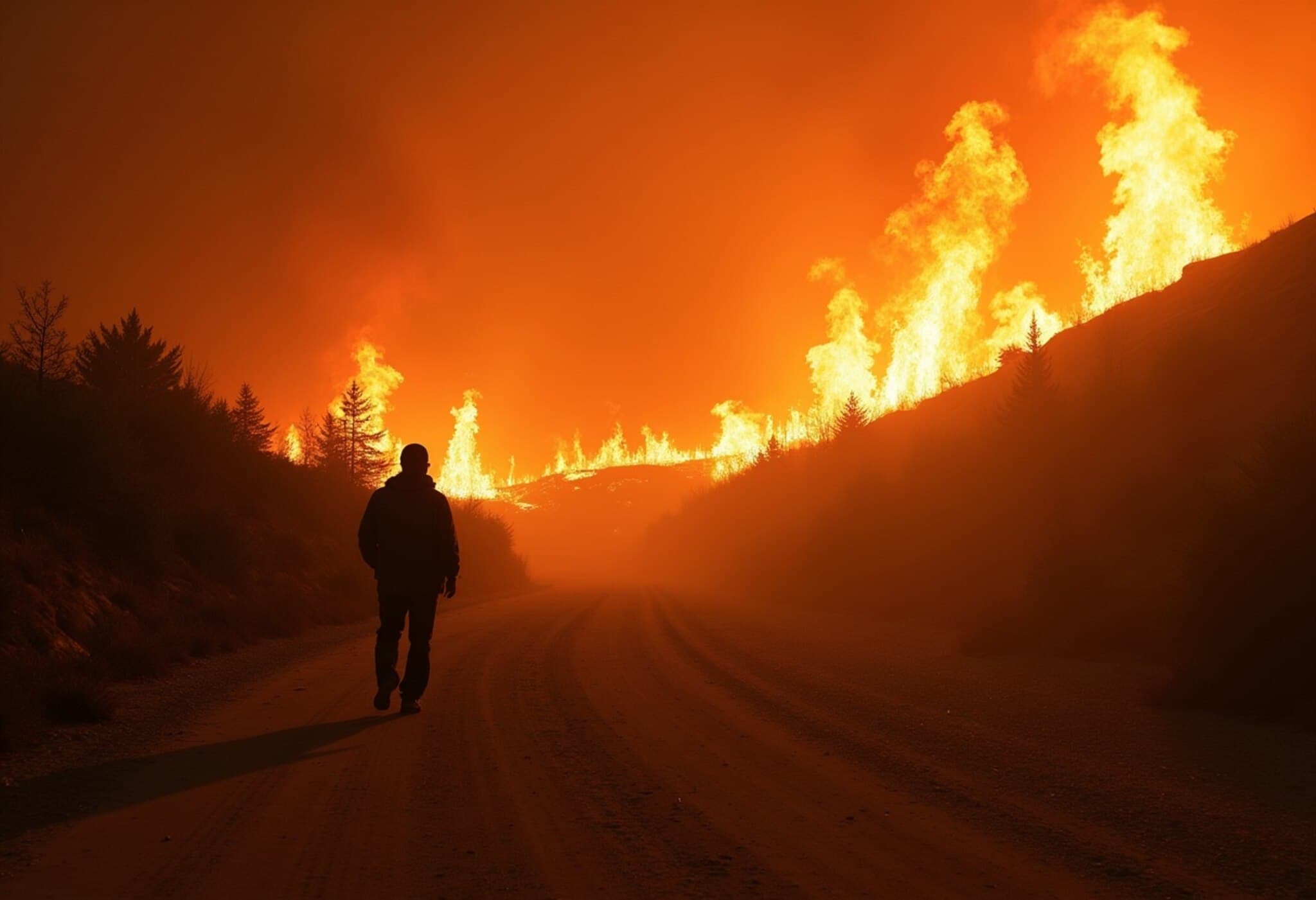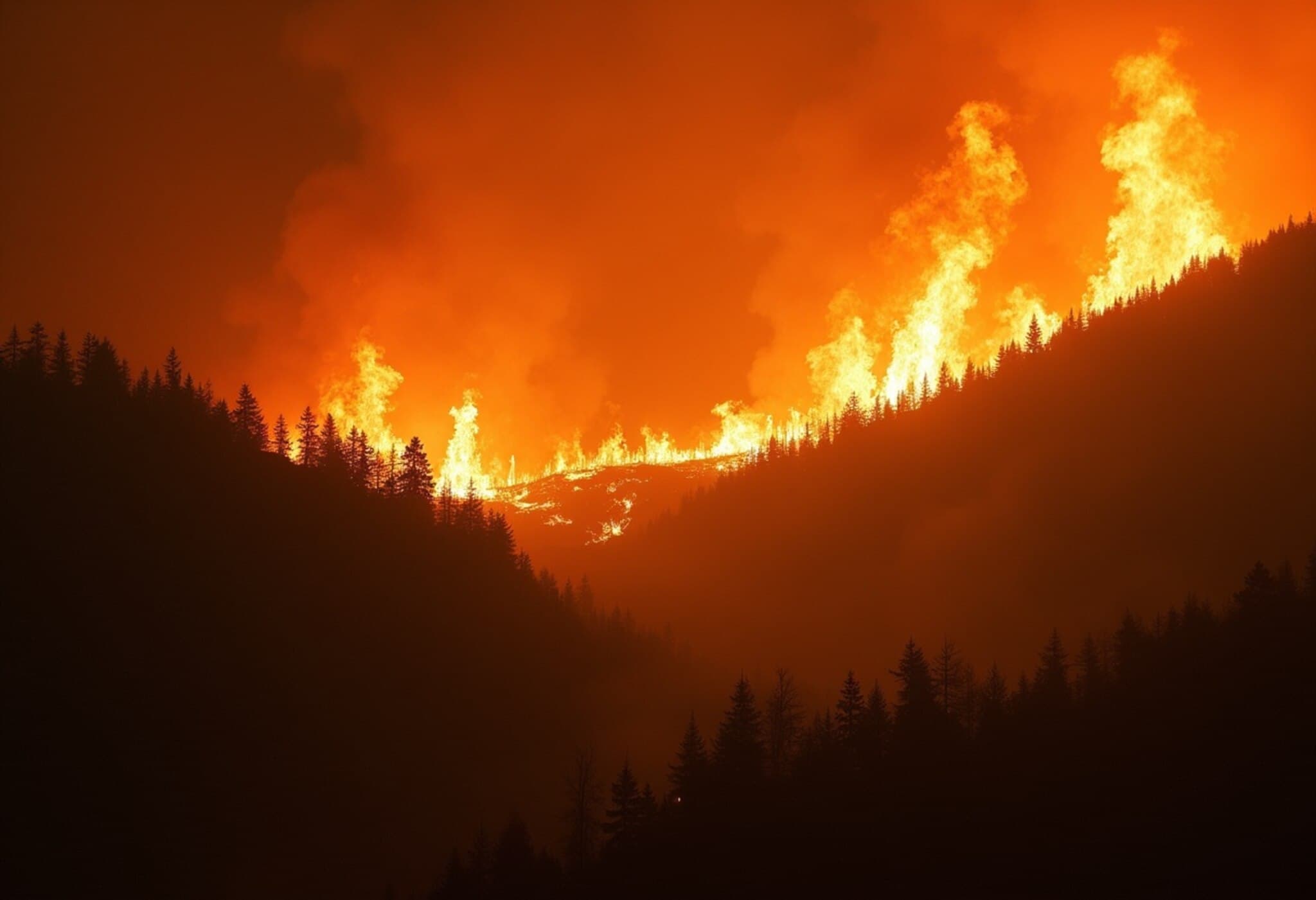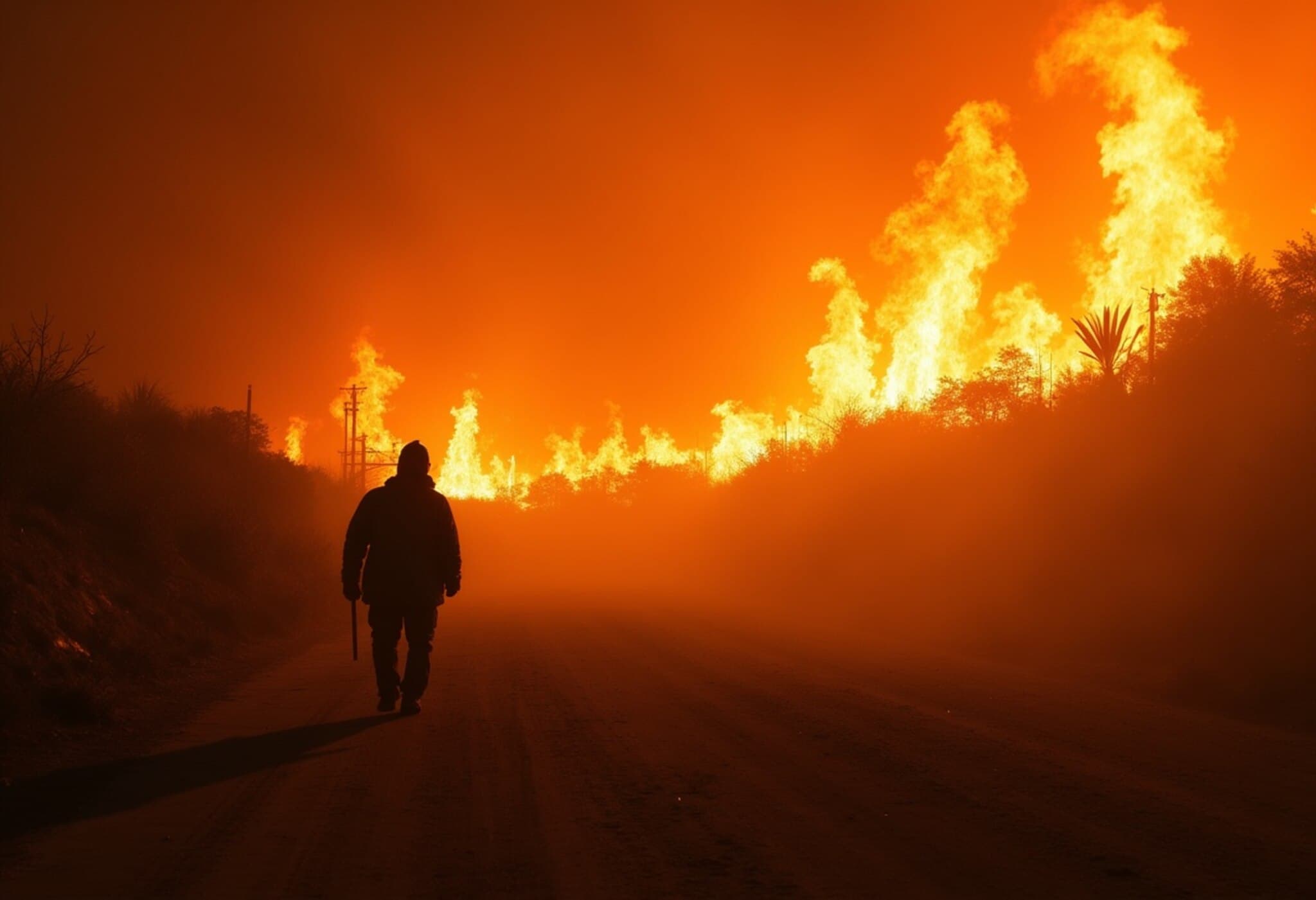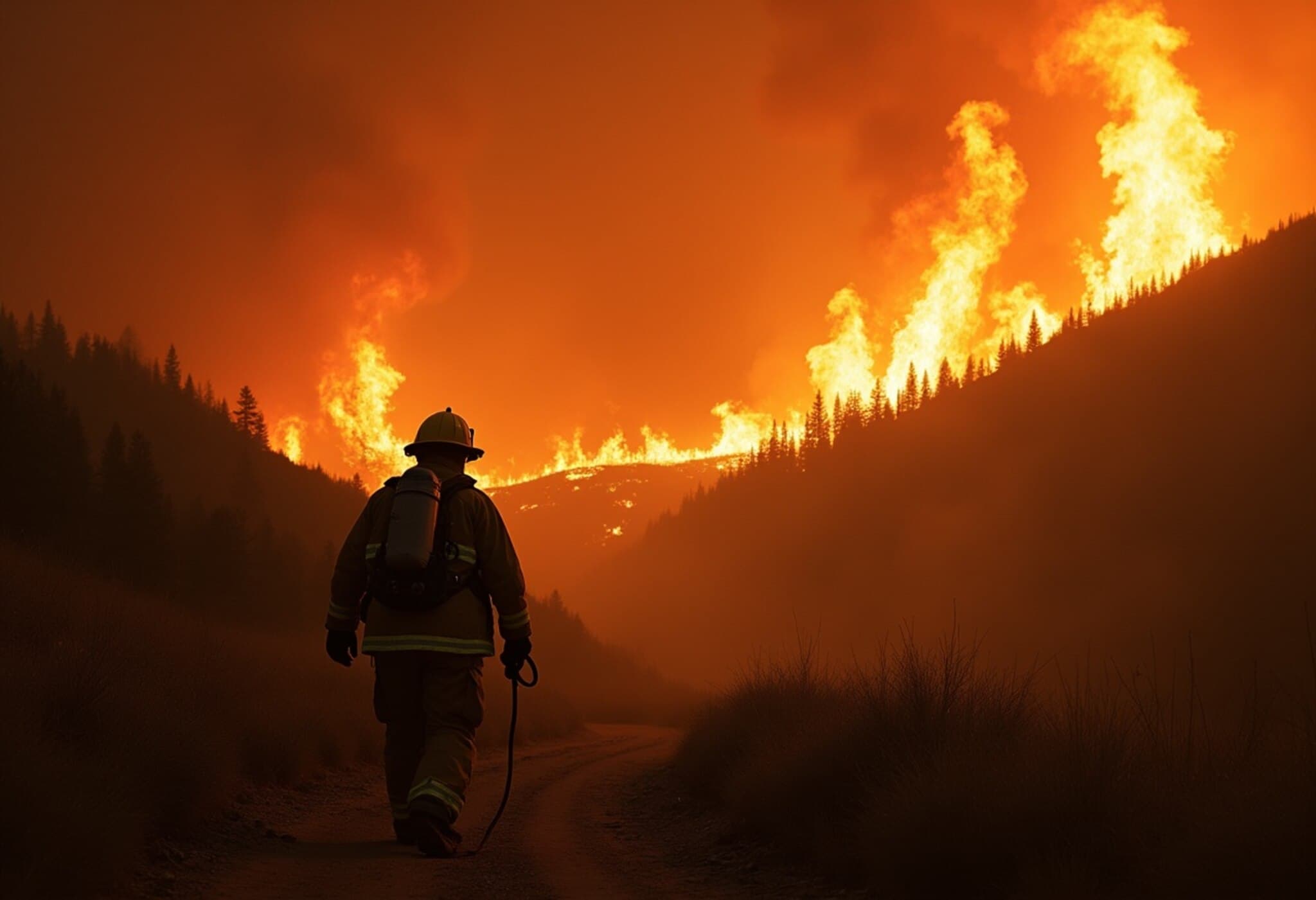Southern Europe Grapples with Widespread Wildfires Amidst Scorching Heatwaves
In the wake of relentless heatwaves and soaring temperatures, southern Europe is facing one of the most severe wildfire seasons in recent memory. The Mediterranean region is battling multiple blazes that have already claimed at least three lives and forced thousands of residents to evacuate their homes.
Greece: Patras and Surrounding Regions in Flames
In Greece, firefighters and volunteers are locked in a grueling battle against wildfires near Patras, the country's third-largest city. The fires have ravaged pine forests and olive groves, threatening residential areas and agricultural facilities alike. Dramatic scenes unfolded as towering columns of smoke and flames loomed behind apartment blocks, incinerating dozens of vehicles in a nearby impound lot.
Fire Service spokesman Vassilis Vathrakoyiannis summed up the intensified crisis: "Today is another very difficult day with the level of fire risk remaining very high across many parts of the country." The strain on firefighting resources is evident as at least 15 firefighters were hospitalized or treated for burns, smoke inhalation, and exhaustion.
Amid the aerial water drops from planes and helicopters, community members have played a crucial role, using cut branches and buckets of water to combat advancing flames, illustrating grassroots resilience in the face of ecological catastrophe.
Spain, Turkey, and Albania: Mounting Human and Environmental Toll
Across Spain, a firefighting volunteer tragically lost their life in the Castile and León region, a stark reminder of the human cost of these disasters. Thousands have been displaced, with evacuation centers overwhelmed and some residents forced to sleep outdoors. Spanish Prime Minister Pedro Sánchez issued a call for heightened precautions while extending heartfelt gratitude to frontline responders.
Farther east in Turkey, wildfires continue unabated since late June, with 18 fatalities reported so far, including forestry workers and rescue volunteers. A recent accident involving a fire truck claimed another life and injured four others. The emotional impact rippled through rural communities, exemplified by images of a local farmer mourning lost livestock.
Meanwhile, in Albania, intense fires near the capital Tirana and central regions have prompted evacuations, especially near a former army ammunition depot where World War II artillery shells pose additional hazards. The country is grappling not only with the current fires but also with hidden threats from war remnants, complicating firefighting efforts.
Regional Challenges and Underlying Causes
These wildfires are not isolated incidents but part of a broader climate and environmental crisis fueled by prolonged drought, heatwaves, and changing weather patterns. Local negligence, including careless farming and the failure to maintain power infrastructure, contribute significantly. Alarmingly, authorities in North Macedonia suspect arson linked to unscrupulous developers, highlighting the complex interplay between environmental damage and economic pressures.
As temperatures potentially climb to 42 degrees Celsius in parts of France, officials remain on high alert. The ongoing heatwave underscores the urgency for comprehensive wildfire preparedness and climate adaptation strategies across Europe.
International Cooperation and the Road Ahead
The European Union has mobilized extensive aid, dispatching both ground crews and aerial firefighting resources to affected countries, including non-member states like Montenegro. Yet, local officials acknowledge the severe limitations in resources against the escalating natural disasters. Ljuban Tmusic, head of Montenegro’s civil protection agency, candidly remarked, "Natural disasters know no borders... the resources we have are clearly not enough." This calls for a renewed commitment to regional collaboration and investment in disaster resilience.
Expert Commentary: Climate Change and Policy Implications
These wildfires illustrate the growing urgency of integrating climate resilience into national policies. Experts emphasize that beyond immediate firefighting efforts, governments must enhance land management, build early warning systems, and involve local communities in prevention strategies.
In the U.S., the intersections of wildfire response and climate policy are increasingly relevant as Mediterranean climates across California and the Southwest experience similar wildfire patterns. Lessons from southern Europe’s ongoing crisis present valuable insights for American policymakers aiming to bolster forest management and emergency response capabilities.
Editor’s Note
The wildfire emergencies sweeping southern Europe reveal a multi-layered crisis combining climate shifts, human activity, and geopolitical realities. As flames continue to consume forests and displace families, questions emerge about preparedness, resource allocation, and long-term climate strategies. How can nations balance immediate response with sustainable prevention? What roles do urban planning and rural economic policies play in mitigating such disasters?
This unfolding situation demands sustained attention not only to fire suppression but also to the broader systemic changes necessary to safeguard communities and ecosystems against an intensifying climate threat.

